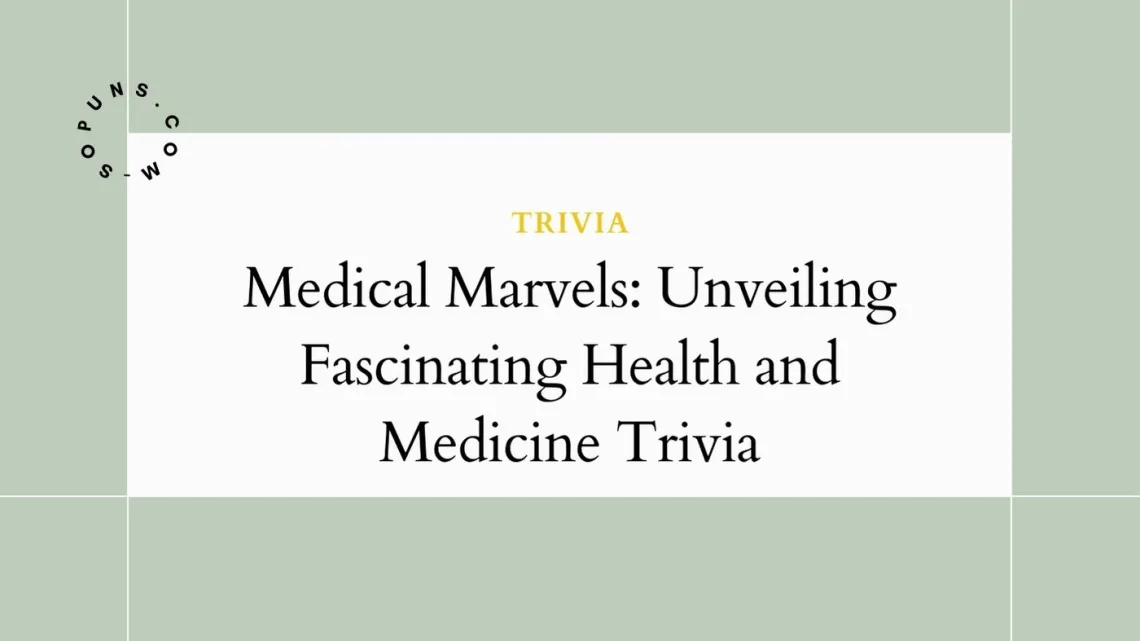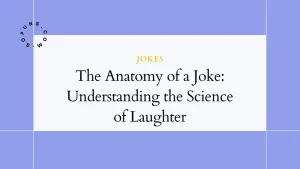The human body is an astonishing machine. From the beating of our hearts to the blinking of our eyes, we perform incredible physiological feats every second without even realizing it. Delving into health and medicine trivia opens up a fascinating world of remarkable facts about anatomy, illnesses, medical pioneers, procedures, and more. This trivia not only entertains us but also promotes better health awareness.
Remarkable Medical Discoveries and Breakthroughs
Medical science has made giant leaps throughout history. For example, before the 1900s, the average life expectancy in the U.S. was only 47 years. Today, it is over 78 years due to medical advances. Some major breakthroughs include Edward Jenner developing the first smallpox vaccine in 1796, Louis Pasteur inventing pasteurization in 1865, Alexander Fleming discovering penicillin in 1928, and Jonas Salk creating the polio vaccine in 1954. These discoveries saved countless lives.
More recent advances like MRI scans, statins for lowering cholesterol, HPV vaccines, and CRISPR gene editing are allowing us to better image, understand, and manipulate the human body. A disease that was once fatal like HIV/AIDS has been transformed into manageable chronic conditions. Blockbuster drugs like ACE inhibitors for blood pressure also improve the quality of life for millions worldwide. Medical discovery continues evolving at a dizzying pace.
Lesser-Known Trivia About Medical Pioneers
The pioneering doctors and scientists who made medical advances often have intriguing stories.
For example, Leonardo da Vinci secretly conducted human dissections in the 1500s to gain anatomical knowledge despite it being banned at the time. William Harvey figured out blood circulation in 1628 by dissecting his sister’s deceased husband!
Florence Nightingale, the founder of modern nursing, credits her longevity to taking up dance in her later years despite being disabled. Elizabeth Blackwell, the first female doctor in the U.S. in 1849, had to disguise herself as a man to attend medical lectures.
Hippocrates, the “Father of Medicine”, had some questionable ideas like bloodletting and mercury elixirs. However, his famous oath to “do no harm” is still upheld by doctors today. These pioneers overcame daunting odds to transform healthcare for the better.
Iconic Medical Procedures and Their Impact
Certain medical procedures are so iconic they are permanently etched in pop culture. For example, CPR was developed in 1960 and has saved countless lives since. The Heimlich maneuver for dislodging objects from airways was introduced in 1974. Central line insertion for IV access and endotracheal intubation for supporting breathing are now routine hospital procedures.
Keyhole surgeries utilizing tiny cameras like laparoscopy changed abdominal surgeries by minimizing hospital stays. Historic organ transplant milestones include the first kidney transplant in 1954 and the first heart transplant in 1967. These procedures demonstrate medicine’s ingenuity and tenacity.
How Health Trivia Promotes Health Awareness
Curiosity is a natural part of the human condition. When we encounter intriguing health facts and trivia, it gets us more interested in our bodies. For example, learning that our stomach cells completely regenerate every 4 days or that our kidneys filter 150 gallons of blood daily makes us respect our innate capabilities more.

Health trivia also reinforces healthy behaviors. When we learn that 80% of our brain is water and dehydration impairs cognition, staying hydrated becomes more of a priority. Understanding how even minor lifestyle tweaks like eating 25 grams of fiber daily substantially lowers heart disease risk also motivates us to eat more healthily. Using trivia as “edutainment” helps information stick better.
Trivia Questions That Explore the Human Body
Our bodies contain endless mysteries waiting to be uncovered through health trivia. For instance, why do we have fingerprints? This unique friction ridge skin helps us grip items. What is the strongest muscle in proportion to its size? The masseter muscles in our jaws that allow us to chew. How fast do fingernails and hair grow? Fingernails grow 4 times faster than hair!
Some trivia delves into amazing feats. How long can the human brain survive without oxygen? Only about 6 minutes before brain death. How far can blood squirt from a severed artery? Up to 25 feet! What is the strongest bone in the human body? The femur in the thigh bears our body weight. We can discover amazing new insights about health through fun trivia.
The Role of Medical Trivia in Education and Research
Trivia not only entertains us but also plays a significant role in medical education and research. Medical students utilizing clever mnemonics like “Some Lovers Try Positions That They Can’t Handle” to memorize cranial nerves or “On Old Olympus’ Towering Tops, A Finn And German Viewed Some Hops” for remembering bones stimulates deeper learning.
Intriguing case studies are also common teaching tools. Trivia reinforces concepts and makes them more memorable. Furthermore, doctors and scientists are fueled by curiosity about unknowns in the human body. The many mysteries yet to be solved in fields like neuroscience indicate there will always be abundant medical trivia still to uncover through research.
Sharing Health Trivia to Inspire Well-Being
Exchanging health trivia whether through social media, games, or friendly discussions allows us to marvel at the body’s wonders. When we share how amazing it is that the epithelial cells lining our lungs could cover a tennis court or how cool it is that our kidneys filter over 40 gallons of fluid daily, it reminds us to appreciate our health more.
Relating trivia about issues like mental health also helps reduce stigma. Creating a spirit of openness about well-being in our communities allows everyone to prioritize self-care. After all, our health is truly our greatest wealth. Trivia gives us “aha!” moments to kindle that motivation to protect our well-being.
So whether you are a medical professional, a patient, or simply someone fascinated by the human body, take some time to unravel its mysteries through health and medicine trivia – you never know what captivating facts you may discover!
Frequently Asked Questions About Health and Medicine Trivia
Where can I find interesting health and medicine trivia?
Great sources include medical websites, science magazines, trivia books, museums, healthcare professionals, and even your own body!
What are some examples of fun medical trivia?
Some examples include that your stomach lining completely renews itself every 4 days, the human eye can distinguish over 10 million different colors, and your body has over 600 muscles!
How can I use health trivia in my daily life?
Memorize trivia to motivate healthy habits like exercising to strengthen your 206 bones or eating fiber to aid your 25 feet of intestines. Also use trivia as icebreakers or share on social media.
Is medical trivia only for doctors?
Absolutely not! While doctors may know a lot of trivia, anyone can appreciate learning fascinating facts about the human body regardless of your background.
Can I trust all the health trivia I encounter?
No, always verify trivia from reputable sources. Urban legends and myths are common. Only trust information from respected medical sites or professionals.
In Summary
The human body is astounding, and health and medicine trivia allows us to uncover its marvels. Fun facts promote health awareness, aid education, inspire research, and bring communities together. Trivia ranges from lesser-known pioneers like Florence Nightingale to remarkable feats our body performs daily without us realizing it. As our knowledge expands, so does our awe at the capabilities of the human body.






No Comments